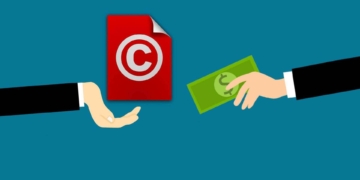No products in the cart.
Definition and legal basis
The moral right of the author is a central legal institution in German copyright law, which is enshrined in Section 11 UrhG. It protects the intellectual and personal relationship of the author to his work. Unlike exploitation rights, moral rights are non-transferable and embody the close connection between the creator and the work.
Key Facts
- The moral right of the author is enshrined in the Copyright Act and protects the connection between the author and the work.
- It comprises three core elements: the right of publication, recognition of authorship and protection against distortion.
- The right of publication (Section 12 UrhG) gives the author control over the publication of his work.
- Protection against distortion (Section 14 UrhG) ensures the integrity of the work and protects the artistic intention.
- The right to acknowledgement (§ 13 UrhG) guarantees attribution and protects against plagiarism.
- Digital technologies require a reinterpretation of moral rights due to new challenges on the Internet.
- Interdisciplinary approaches are necessary to protect intellectual property in a digital world.
The moral right comprises three core elements:
– Right of publication (Section 12 UrhG)
– Right to recognition of authorship (Section 13 UrhG)
– Protection against distortion of work (Section 14 UrhG)
These rights secure the author’s control over his intellectual property and protect his personal interests. They apply independently of the economic rights of use and remain in force even after a transfer of rights.
Publication rights and plant protection
The right of publication under Section 12 UrhG gives the author the exclusive right to determine whether and when his work is published. The author is sovereign in deciding the time, form and scope of publication. The work may not be made publicly accessible without the author’s consent.
Protection against distortion in accordance with Section 14 UrhG guarantees the integrity of the work. Any change that jeopardizes the intellectual interests of the author can be prohibited. This includes both changes to the content and design that impair the original artistic intention.
Recognition of authorship
The right to acknowledgement under Section 13 UrhG ensures that the author can be named or remain anonymous. They can decide for themselves whether and how their name is associated with the work. Plagiarism and unauthorized use of names can be legally prosecuted.
### Digital challenges
Digital technologies pose new challenges for moral rights. Online platforms, social media and AI-generated content require a reinterpretation of traditional protection concepts. Jurisprudence must continuously develop solutions for digital forms of use.
Future prospects
The development of moral rights is characterized by technological innovations and changing forms of communication. Interdisciplinary approaches are required to ensure the protection of intellectual property in a digital world.





















